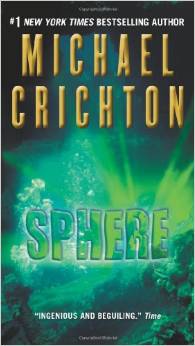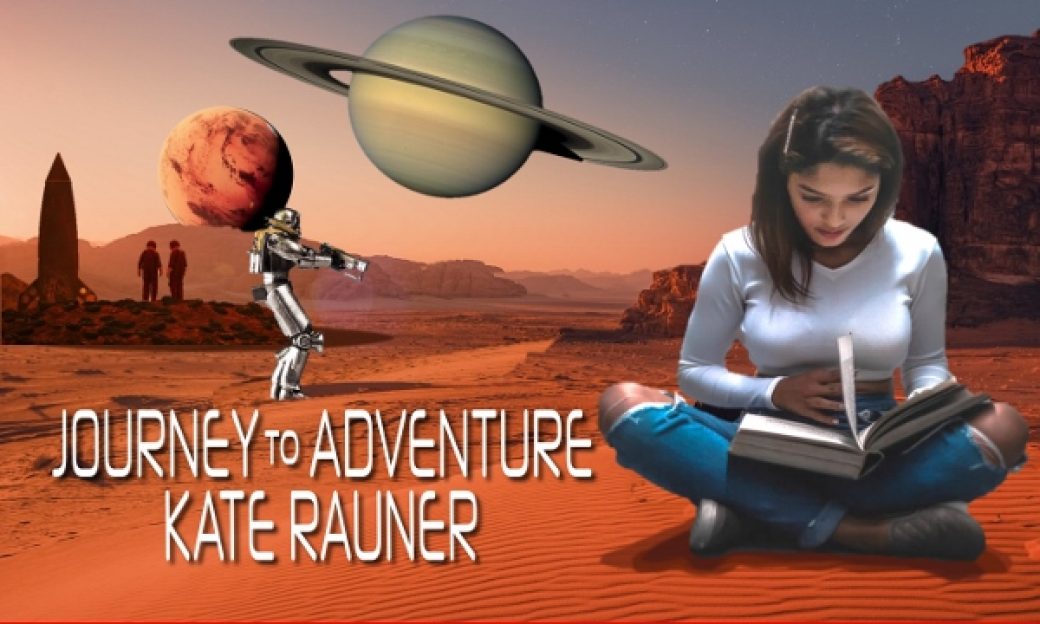 In my attempt to understand writing advice, I’m reading popular science fiction novels with an eye to learning. I recently read Sphere by Michael Crichton. The book has a 4 1/2 star average on Amazon with 831 reviews, 83% of them giving 4 or 5 stars. That’s beyond popular – it’s phenomenal. The criticism I noticed most was from readers who disliked the ending. There was a one-star review that said “a book that kept me up until 3 a.m.” but the reviewer didn’t like the ending. As a new author, I think I’d be thrilled with that review.
In my attempt to understand writing advice, I’m reading popular science fiction novels with an eye to learning. I recently read Sphere by Michael Crichton. The book has a 4 1/2 star average on Amazon with 831 reviews, 83% of them giving 4 or 5 stars. That’s beyond popular – it’s phenomenal. The criticism I noticed most was from readers who disliked the ending. There was a one-star review that said “a book that kept me up until 3 a.m.” but the reviewer didn’t like the ending. As a new author, I think I’d be thrilled with that review.
As a reader, I enjoyed the book and happily read to the end. Like some reviewers on Amazon, I noticed a similarity to the classic scifi movie Forbidden Planet, but the setting is different enough that it didn’t bother me. Crichton is known for basing his stories on science, and Sphere includes a neat view of life in a deep (really deep) sea habitat. Since the story is fiction, the author is entitled to departures from reality even in the (presumably) real portions of the story. For example, after a description of how sounds go squeaky in a helium-dominated atmosphere, each character hangs a “talker” around their neck. I wonder if there is such a thing, or if it’s simply convenient that they speak in normal tones for the rest of the story. (I often wonder how much nonsense is inside my head because of something I read in fiction that sounded real enough to believe.)
Did Crichton follow typical writing advice?
The advice: Characters should have demographic, family, and psychological histories.
Crichton gave his protagonist some perfunctory family background that, for me, could have been skipped entirely. The protag’s technical background as an academic psychologist is important to the story and Crichton offers an entire chapter on this. I found that chapter interesting, but the story would have been the same if Crichton wrote one paragraph saying ‘he’s a big-shot psychologist.’ It was a “data dump” but it didn’t discourage me from continuing to read.
Why did it work? Crichton interspersed the data dump with some comic elements (political big-shots asking silly questions about aliens). He presented the dump early, so it did not interrupt the action. He limited his data dumps: other main characters were given technical backgrounds that supported what they did in the story, but only the protag at the data dump level.
The advice: Show, don’t tell.
Crichton “told” often. Some was in context – the leader gives a briefing to new arrivals. Some was blatant telling in the narrator voice: “Many theorists argued… Men already had trouble communicating… Yet men and dolphins might appear virtually identical… But the field of knowledge we were most likely to share…” That is the beginning of each of a string of paragraphs. The “telling” ends by coming back to why “the team mathematician was going to play a crucial role.” Crichton often simply tells something, then proceeds to use the information in the story. But some of his telling is not critical to the story.
Why did it work? It was easy to swallow. For me, the science in the “telling” sounded real and interesting. Otherwise, the “told” information was slipped in easily and used immediately.
The advice: Avoid “saidisms”. He said, she said, is best unless you can drop the “said” altogether because it’s obvious who spoke.
This is advice Crichton follows. And, rather than inserting the dreaded adverb, Crichton couples dialog with action:
- “‘Oh my God,’ she said. She pushed her thick dark hair away from her face.” (As an added bonus, this character’s physical description becomes a plot point late in the book);
- “Norman went on in a rush. ‘And when does Jerry…'”
The advice: details of the setting must matter to the story and be there for a reason. The character’s perception of the setting matters more than objective description.
Crichton follows this advice. The setting is strange and unfamiliar, inherently dangerous – a deep sea habitat with helium-dominant atmosphere. Crichton is known for the science and technology behind his settings. His descriptions gave me a good picture of what it would be like in such a place and I can follow how it falls apart during the story. The main character often gives his personal perception of the setting.
What did I learn? Crichton puts in words that are necessary to the story or the setting. Description creates reality for the reader, and Crichton creates a believable world. Where showing would cost a lot of words, he tells the reader something simply – then uses the information (though I might quibble on some of the backstory).
While no single book makes everyone happy, Sphere is a smash hit. I’ll try to learn from it. If you’ve read Sphere, why do you think it worked? Or not?
By the way, Sphere’s copyright is 1987. Do you think I’m making a mistake looking at an older book for guidance? Has the measure of fiction writing changed enough in thirty years to make its appeal irrelevant?

Pingback: Take That! Standard Writing Advice #ScienceFictionBook #MazeRunner | Kate Rauner
Pingback: Lois Lowry’s #ScienceFictionBook The Giver and Writing Tips | Kate Rauner
Pingback: Sirens of Titan #ScienceFictionBook and Vonnegut’s Writing Rules | Kate Rauner
Pingback: Dove Arising – Teens in a Double #Dystopia | Kate Rauner
Sphere was the first true novel I ever read beyond the YA readers of my youth. I was in the 6th grade and picked it up off the shelf at my house. My father was on business trips often and he brought back paperbacks all the time. They collected in heaps. I read it because it was staring at me from the bookshelf just outside my door and across the hall from my bedroom. I wanted to know just what the big deal was with reading novels. WOW! Been a reader, a voracious reader, and now writer, ever since. I read this in one sitting that night and my world was forever changed. I burned through those 383 pages (some copies have more or less depending on printing of course) with a fury that has never ended. I thought the film..was one of the worst movies EVER made. What a waste. The movie in my head won a bunch of Oscars.
LikeLike
Glad I could remind you of a favorite! Lots of reviews on Amazon say ‘don’t be misled by the movie – the book is great’. I think readers of almost any age can enjoy Sphere.
LikeLiked by 1 person